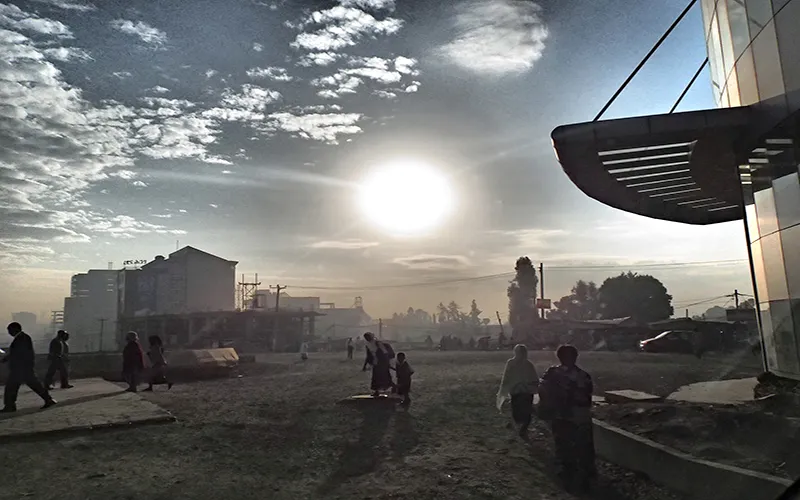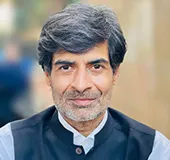Out of the 7 billion people that inhabit our planet, around 2 billion still lack access to essential medicines, 1.6 billion have no electricity, and 925 million are chronically undernourished. Almost a third of all yearly human deaths (some 18 out of 57 million) are due to poverty-related causes. The richest 14% of the world's population have a mean life expectancy of 84, while the poorest 34% of households live for only 36 years on average. This situation represents a failure in the provision of a basic human right to "standard of living adequate for the health and wellbeing" of an individual and his or her family, "including food, clothing, housing and medical care and social services", as highlighted in the 1948 Universal Declaration of Human Rights; these also constitute what is commonly referred to as the right to life. While these statistics are from a research carried out by noted scholar Thomas Pogge some years ago, more recently, international and multilateral processes continue to obfuscate the centrality of the right to life outlined in the 1948 Charter.
The year 2015 is crucial for global agreements that establish the trajectories and paradigms of development. The Millennium Development Goals (MDGs) are set to be replaced with the Sustainable Development Goals (SDGs) at the UN General Assembly in September and negotiations on a new global treaty on climate change will culminate in Paris in December. The narrative of development in the 21st century will be defined by these two agreements. While the pursuit of European styled sustainability is important, the need to secure the right to life of each human should be paramount, unconditional and non-negotiable. Any governance system, financing regime or international charter that denies a third of its people five decades of the right to life accorded to its rich does not lend itself for saving or sustaining. The well-being of the planet holds no attraction for those excluded and the ambition to save it for future generations has little appeal unless we mobilise a wider set of 'invested' stakeholders.
The fact that the first of the newly delineated SDGs aims to "end poverty in all its forms everywhere" is promising, but the urgency of this objective could be drowned out by the wide proliferation of goals: 17 in total - with 169 targets. More goals will not translate into more funds to meet the goals. SDGs that seek to promote sustainable tourism, culture of peace and non-violence and peaceful and inclusive societies amongst others, are difficult to argue against but dilute the already scant political and financial resources targeting poverty alleviation. Imposing these and additional environmental targets may not be feasible without an increase in funding, especially for Least Developed Countries (LDCs) attempting to lift their people out of poverty. There is also concern that such targets could be turned into pre-conditions for flow of aid, whereby poverty alleviation efforts could be shackled by a focus on factors that are colored by ideological considerations. A fixation on creating a better world for tomorrow, as imagined by a few, must not continue to allow 18 million people to die of poverty each year.
Key fault lines were again revealed by the informal substantive sessions leading up to the Financing for Development (FFD) conference in Addis Ababa this year. India and the rest of G77 (representing the developing countries) warned against an overwhelming emphasis on environmental goals at the cost of poverty alleviation, and highlighted the principle of 'additionality' - new resources required over and above current Official Development Assistance (ODA) in implementing the SDGs. Contrastingly, the developed nations underscored the importance of sustainable economic practices, domestic resource mobilization, and new financial instruments such as commodity-based derivatives. Ultimately, the Addis Ababa Action Agenda adopted at the conference failed to yield concrete new proposals for additional funding that can be swiftly implemented to meet the world's multiple challenges. Put simply, there was no new money brought to the table. Instead, it was apparent that even the previous ambition of the rich countries to commit 0.7 per cent of Gross National Income as ODA remains only a statement of intent on a "best effort basis".
Worryingly, the Addis conference once again exposed the inequities present in global decision making processes. The India led initiative to upgrade the UN tax committee to an intergovernmental tax body yielded only symbolic gains (rallying together of the G-77) after developed countries blocked such efforts and instead argued that the OECD was taking the lead in such efforts. Over 100 developing countries thus continue to be excluded from decision making processes on global tax standards. It is worth noting that lost tax revenue for development financing purposes in developing countries is estimated at over USD 300 billion annually. This dwarfs the total ODA financing for 2013 which stood at USD 135 billion. It is clear that changing global norms has the potential for unlocking massive resources for pushing the development agenda forward. Yet, attempts to create a more equitable international governance system continue to fail.
In addition to the adoption and financing of the newly delineated SDGs, the upcoming UN Climate Change Conference in Paris will also play a significant role in shaping future global developmental processes. One of the positives of the Addis summit was the reaffirmation by developed nations to transfer environmentally sound technologies to developing countries on favourable terms. The outcome in Paris must be aligned towards the needs of the poorest all across the world, for whom, development is critical on access to lifeline energy. The world's most developed nations accelerated processes of climate change in their paths to prosperity and must therefore take the initiative for financing and implementing sustainability measures. However, there was little by way of progress towards mobilizing USD 100 billion for climate action post 2020 and that discussion seems to have been deferred to the COP21 at Paris.
The process of building the post-2015 development agenda seems to be struggling to reconcile present needs like the eradication of poverty and hunger, with more value based goals. A worrying divergence in priorities has become apparent in these discussions, a divergence that threatens to manifest itself in multilateral deals that neglect the need for survival of a large proportion of the world population. While the principle of Common but Differentiated Responsibilities (CBDR) is a concept from the climate arena, processes of development and aid are also not delinked from such realities. The MDGs for example were relatively successful precisely because they were framed with a clear understanding of how the needs of the poor can be addressed through the flow of capital from developed countries. The economic and social compulsions faced by the poor must come first, ahead of value frameworks that are driven by first world priorities. When more than a third of the world's population does not live to see 40 on average, it is clear that securing the right to life for these people should be the only priority of global developmental processes. Can there ever be any shared values, if there is no agreement on the fundamental right to life?
(Samir Saran is Vice President at Observer Research Foundation and tweets @samirsaran. A shorter version of the article, titled 'Putting life first' was published in The Hindu on August 3, 2015)
The views expressed above belong to the author(s). ORF research and analyses now available on Telegram! Click here to access our curated content — blogs, longforms and interviews.




 PREV
PREV


